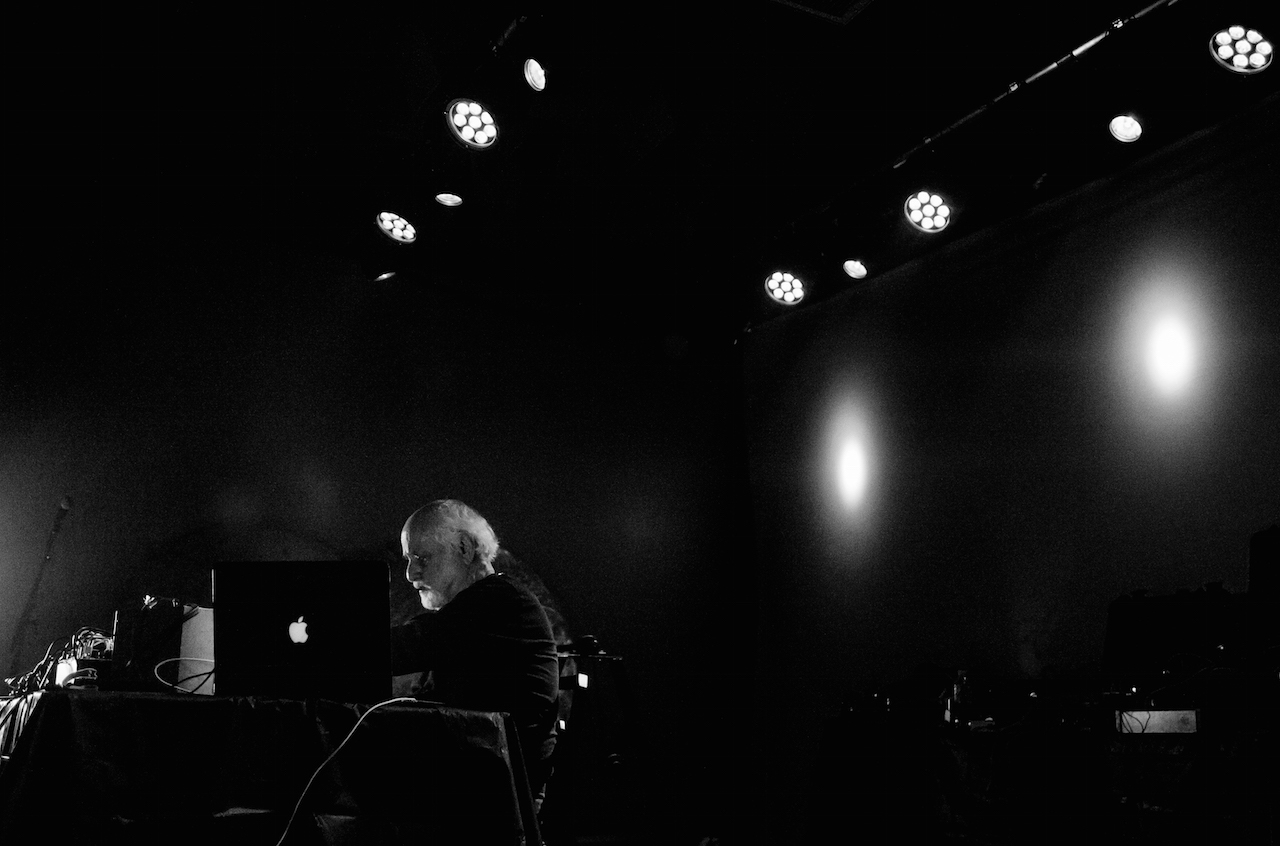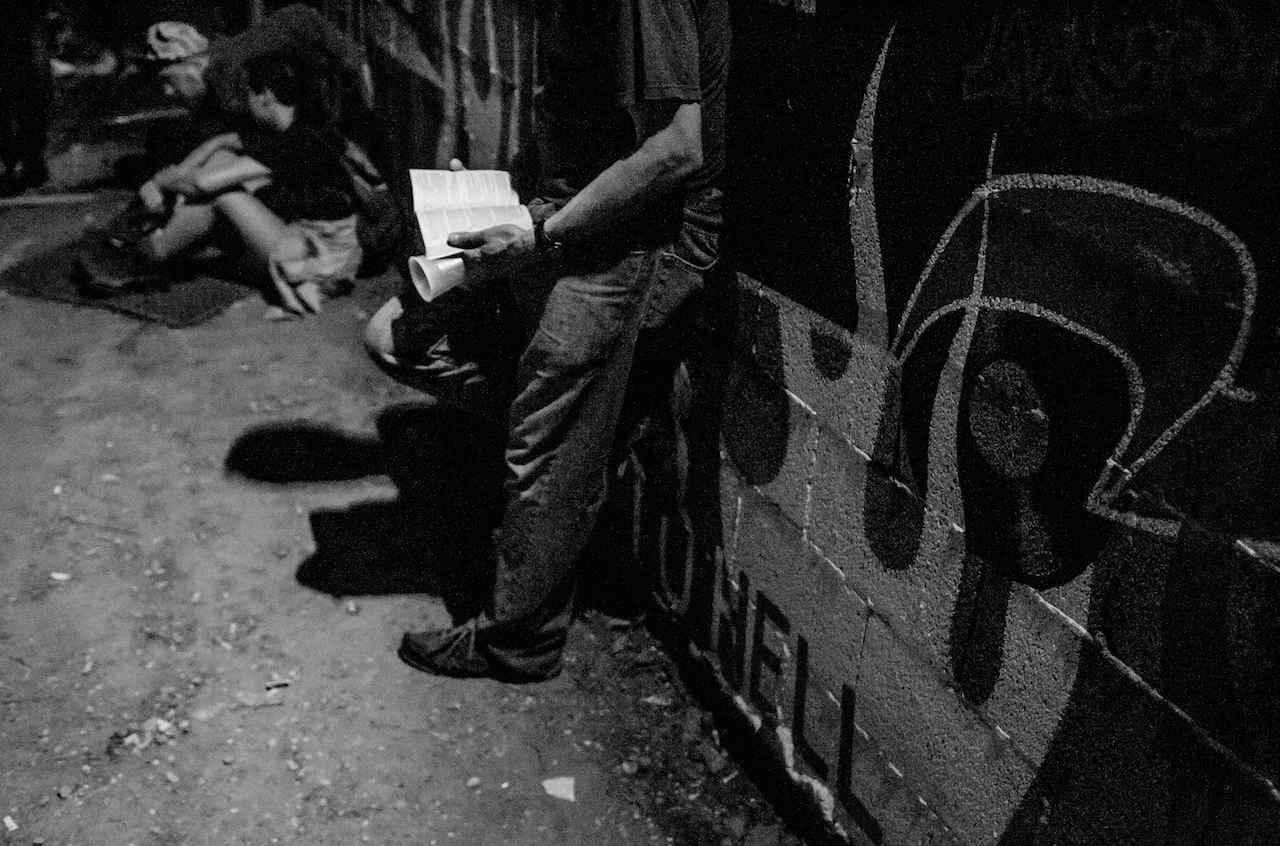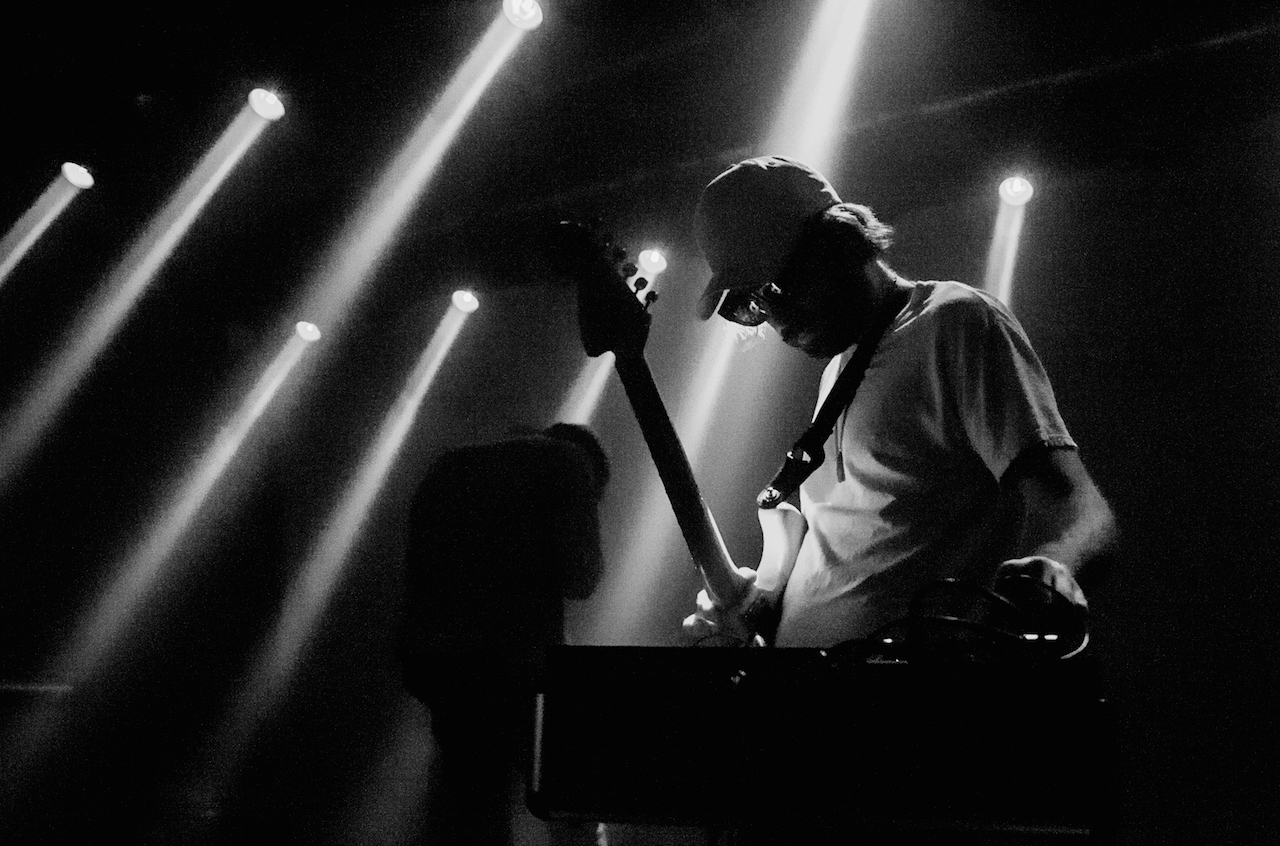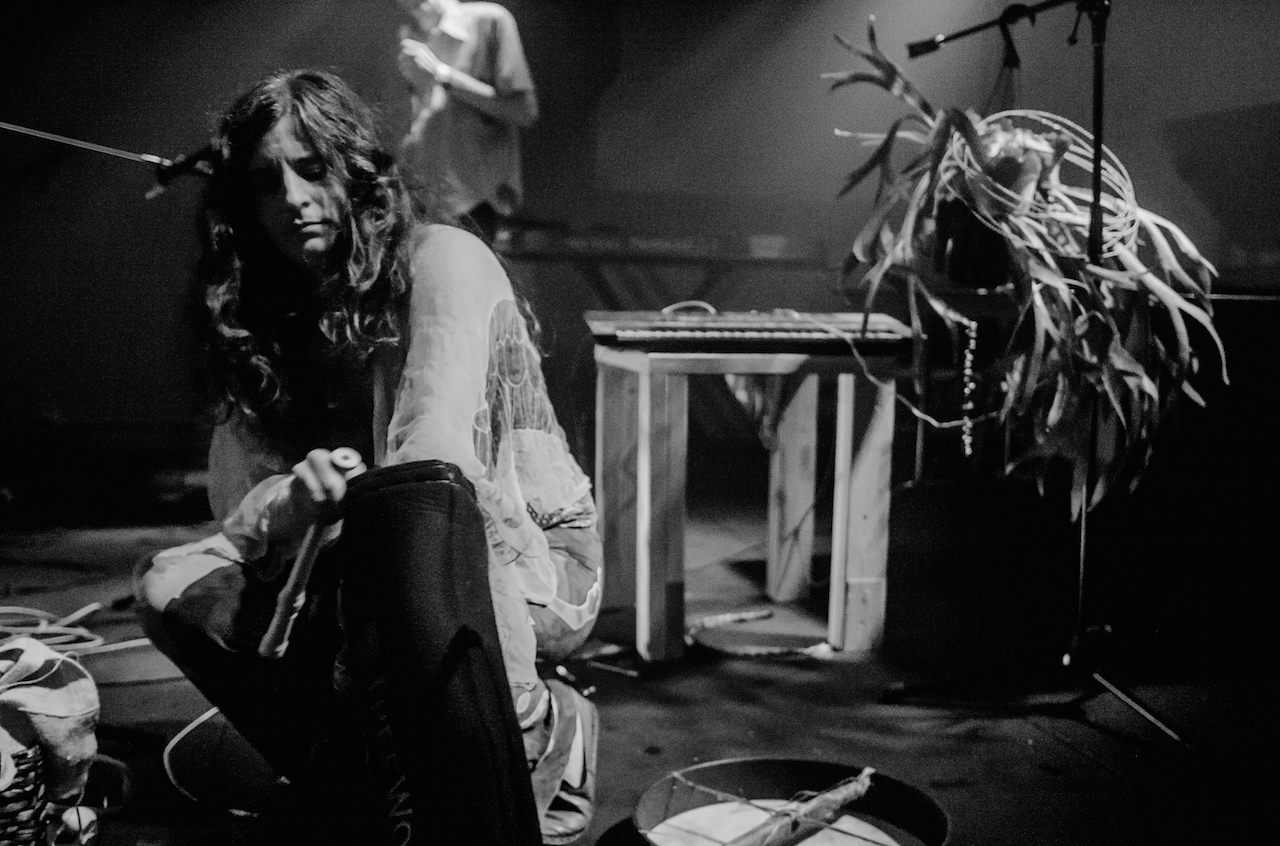- "Trip Metal is free." The most visible promotion for the first festival thrown by Midwestern noise band Wolf Eyes was a billboard bearing this slogan. The trio of John Olson, Nate Young and "Crazy" Jim Baljo have been around for 20 years, and they're widely regarded as one of the best American experimental music acts. "Trip Metal" is the term they used to describe their lurching, uncompromising sound. They've had odd brushes with the mainstream, first in the mid-'00s when they signed to Sub Pop and appeared in Spin Magazine, and most recently when fellow Detroiter Jack White signed them up to his Third Man label. Despite this, the core constituency for a band like Wolf Eyes is the underground network of promoters, label owners and fellow noise musicians that dutifully populate basement and art gallery shows. Enter Trip Metal, a three-day event featuring more than 30 acts as well as a film and lecture program, held at the same time as Detroit's Movement festival. (When I asked festival organizer Forest Juziuk about that, he said: "Our plan was always to do it concurrently with Movement, but to emphasize the history of electronic music.") About a month before, Wolf Eyes announced they would not be charging admission.
Trip Metal began on Friday, May 27th, in the Third Man shop on Cass Corridor, a shining if somewhat isolated example of a renewed Detroit. Inside, Juziuk gleefully presented a program of experimental 16mm films such as Kenneth Anger's landmark Invocation Of My Demon Brother and 7/64 Leda And The Swan by the Viennese Actionist director Kurt Kren. (The latter featured a sticky, naked woman being covered in feathers interspersed with disgusting shots of a swan.) The shop was completely packed with oddball characters.
Over at the main venue, El Club, a beautifully rehabbed 300-capacity space over in Mexicantown, Buchla pioneer Morton Subotnick took the stage in front of a packed house. He worked up from patient, quiet sounds to a pulsating series of melodic arpeggios. Chicago trio Panicsville's stage show acted as a seeming riposte to Subotnick's studied performance. As they coaxed difficult, droning sounds from their modular rigs, one of the group performed hilarious magic tricks, before all three slammed White Castle burgers and drank milk with contact mics in their mouths.
Down at Menjo's theater, Aaron "Fit" Siegel was looking after the only scheduled Trip Metal afterparty. He told me he aligned with the festival to set his event apart from the raft of Movement afterparties, but he'd made sure to book artists in line with Trip Metal's aesthetic. Two live acts in particular illustrated this: Madteo, whose set was both excellent and completely un-danceable, and Stallone The Reducer. The latter, a recent signee to Fit's wave-oriented Est. 1983 sublabel, cut an imposing figure, dropping industrial-driven minimal synth productions while wheezing into a Britney Spears-style headset microphone. It was thoroughly memorable.
The next day at Trinosophes coffee shop, Hieroglyphic Being (AKA Jamal Moss) sat down for a talk with Sun Ra Arkestra's Danny Raye Thompson and band leader Marshall Allen (who is 92) ahead of their headlining slot at El Club. Moss, who originally went by DJ Sun Ra, discussed various aspects of his past and present, from growing up in a home with both Stockhausen and soul records, to his mentorship by Chicago house legend Adonis and his ongoing collaboration with Allen. He spoke in appropriately cosmic terms, saying continuous effort can "gravitate you into the orbit of the greats," referring to the free jazz legends who joined him at the table. Onstage at El Club, the trio absolutely slayed, with Allen alternating between alto sax and a strange electronic horn, while Thompson stuck to baritone sax. Moss, meanwhile, played piano solos on an iPad while bringing kicks and great sheets of noise in and out of the mix. Every now and then, he'd pause to read Sun Ra's poetry.
Despite the difficult music, the mood was friendly, jovial even. If a set was too esoteric, you could step into El Club's large yard, where record nerd DJs played pitched down Omar-S cuts and slabs by the likes of Les Vampyrettes. Leftfield dance music figures Carlos Souffront, Bill Converse, Via App, Bookworms, DJ Sotofett and Beau Wanzer mingled amidst a devoted crowd of locals and visitors from Baltimore, New York and other East Coast cities.
There are trends in American experimental music just as there are in all genres, and festivals like Trip Metal offer the chance to take the pulse of the amorphous, non-commercial milieu. In the '00s, Wolf Eyes were part of a wave of groups who carried out powerful, full-on blasts with titles like "Stabbed In The Face," but the noise scene in 2016 seems to explored a more contemplative vibe. The excellent performance from Wooden Highway, a duo comprising Peoples Records owner Brad Hales and Michelle Birawer, consisted of ghostly Rhodes tones, field recordings of trains and hushed vocals reminiscent of Grouper. Dranolith, a Montreal artist previously known for being loud, has taken a turn towards death rattle folk. The highly-touted performance from Andrew WK saw him playing Bach's "Chorale Prelude F Minor" (the theme from Andrei Tarkovsky's 1972 film Solaris) with scratchy accompaniment from Young and Twig of the Baltimore group Nautical Almanac.
A full house awaited the festival finale from Wolf Eyes. Rather than delivering a brutal catharsis, the trio played a remarkably low-key set, especially by their standards. Olson, known for his squalls of atonal saxophone, was more tuneful than usual, while Baljo was equally restrained on guitar. Young, the de facto frontman, lorded over a table of electronics reciting metaphysical spoken-word that felt spiritually akin to the stream-of-consciousness ramblings of The Doors' Jim Morrison. Trip Metal wouldn't end with a bang, but a whimper. Even so, Wolf Eyes' failure to meet expectations was somehow more satisfying, in line with the iconoclastic nature of the scene over which they continue to preside.
Photo credits /
Alexandre da Veiga
 The next day at Trinosophes coffee shop, Hieroglyphic Being (AKA Jamal Moss) sat down for a talk with Sun Ra Arkestra's Danny Raye Thompson and band leader Marshall Allen (who is 92) ahead of their headlining slot at El Club. Moss, who originally went by DJ Sun Ra, discussed various aspects of his past and present, from growing up in a home with both Stockhausen and soul records, to his mentorship by Chicago house legend Adonis and his ongoing collaboration with Allen. He spoke in appropriately cosmic terms, saying continuous effort can "gravitate you into the orbit of the greats," referring to the free jazz legends who joined him at the table. Onstage at El Club, the trio absolutely slayed, with Allen alternating between alto sax and a strange electronic horn, while Thompson stuck to baritone sax. Moss, meanwhile, played piano solos on an iPad while bringing kicks and great sheets of noise in and out of the mix. Every now and then, he'd pause to read Sun Ra's poetry. Despite the difficult music, the mood was friendly, jovial even. If a set was too esoteric, you could step into El Club's large yard, where record nerd DJs played pitched down Omar-S cuts and slabs by the likes of Les Vampyrettes. Leftfield dance music figures Carlos Souffront, Bill Converse, Via App, Bookworms, DJ Sotofett and Beau Wanzer mingled amidst a devoted crowd of locals and visitors from Baltimore, New York and other East Coast cities.
The next day at Trinosophes coffee shop, Hieroglyphic Being (AKA Jamal Moss) sat down for a talk with Sun Ra Arkestra's Danny Raye Thompson and band leader Marshall Allen (who is 92) ahead of their headlining slot at El Club. Moss, who originally went by DJ Sun Ra, discussed various aspects of his past and present, from growing up in a home with both Stockhausen and soul records, to his mentorship by Chicago house legend Adonis and his ongoing collaboration with Allen. He spoke in appropriately cosmic terms, saying continuous effort can "gravitate you into the orbit of the greats," referring to the free jazz legends who joined him at the table. Onstage at El Club, the trio absolutely slayed, with Allen alternating between alto sax and a strange electronic horn, while Thompson stuck to baritone sax. Moss, meanwhile, played piano solos on an iPad while bringing kicks and great sheets of noise in and out of the mix. Every now and then, he'd pause to read Sun Ra's poetry. Despite the difficult music, the mood was friendly, jovial even. If a set was too esoteric, you could step into El Club's large yard, where record nerd DJs played pitched down Omar-S cuts and slabs by the likes of Les Vampyrettes. Leftfield dance music figures Carlos Souffront, Bill Converse, Via App, Bookworms, DJ Sotofett and Beau Wanzer mingled amidst a devoted crowd of locals and visitors from Baltimore, New York and other East Coast cities. There are trends in American experimental music just as there are in all genres, and festivals like Trip Metal offer the chance to take the pulse of the amorphous, non-commercial milieu. In the '00s, Wolf Eyes were part of a wave of groups who carried out powerful, full-on blasts with titles like "Stabbed In The Face," but the noise scene in 2016 seems to explored a more contemplative vibe. The excellent performance from Wooden Highway, a duo comprising Peoples Records owner Brad Hales and Michelle Birawer, consisted of ghostly Rhodes tones, field recordings of trains and hushed vocals reminiscent of Grouper. Dranolith, a Montreal artist previously known for being loud, has taken a turn towards death rattle folk. The highly-touted performance from Andrew WK saw him playing Bach's "Chorale Prelude F Minor" (the theme from Andrei Tarkovsky's 1972 film Solaris) with scratchy accompaniment from Young and Twig of the Baltimore group Nautical Almanac. A full house awaited the festival finale from Wolf Eyes. Rather than delivering a brutal catharsis, the trio played a remarkably low-key set, especially by their standards. Olson, known for his squalls of atonal saxophone, was more tuneful than usual, while Baljo was equally restrained on guitar. Young, the de facto frontman, lorded over a table of electronics reciting metaphysical spoken-word that felt spiritually akin to the stream-of-consciousness ramblings of The Doors' Jim Morrison. Trip Metal wouldn't end with a bang, but a whimper. Even so, Wolf Eyes' failure to meet expectations was somehow more satisfying, in line with the iconoclastic nature of the scene over which they continue to preside.
There are trends in American experimental music just as there are in all genres, and festivals like Trip Metal offer the chance to take the pulse of the amorphous, non-commercial milieu. In the '00s, Wolf Eyes were part of a wave of groups who carried out powerful, full-on blasts with titles like "Stabbed In The Face," but the noise scene in 2016 seems to explored a more contemplative vibe. The excellent performance from Wooden Highway, a duo comprising Peoples Records owner Brad Hales and Michelle Birawer, consisted of ghostly Rhodes tones, field recordings of trains and hushed vocals reminiscent of Grouper. Dranolith, a Montreal artist previously known for being loud, has taken a turn towards death rattle folk. The highly-touted performance from Andrew WK saw him playing Bach's "Chorale Prelude F Minor" (the theme from Andrei Tarkovsky's 1972 film Solaris) with scratchy accompaniment from Young and Twig of the Baltimore group Nautical Almanac. A full house awaited the festival finale from Wolf Eyes. Rather than delivering a brutal catharsis, the trio played a remarkably low-key set, especially by their standards. Olson, known for his squalls of atonal saxophone, was more tuneful than usual, while Baljo was equally restrained on guitar. Young, the de facto frontman, lorded over a table of electronics reciting metaphysical spoken-word that felt spiritually akin to the stream-of-consciousness ramblings of The Doors' Jim Morrison. Trip Metal wouldn't end with a bang, but a whimper. Even so, Wolf Eyes' failure to meet expectations was somehow more satisfying, in line with the iconoclastic nature of the scene over which they continue to preside. Photo credits / Alexandre da Veiga
Photo credits / Alexandre da Veiga